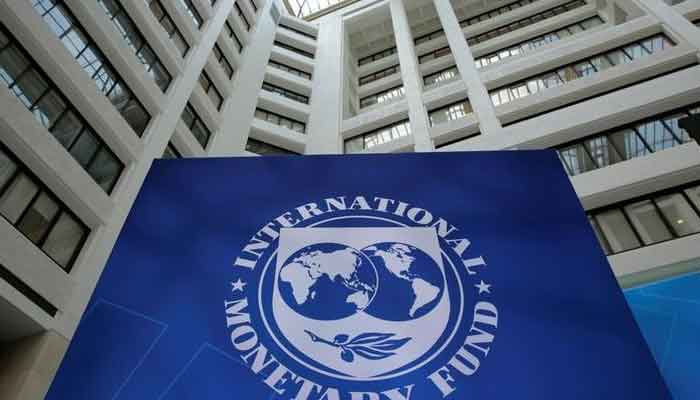Deal with IMF ‘after budget approval’
Pakistan has agreed to apply Rs5 per litre levy on petroleum products
ISLAMABAD: The talks between the Pakistani authorities and International Monetary Fund (IMF) staff will now resume after the approval of the budget for incoming fiscal year 2022-23, during which the two parties will strike a deal for a loan facility, it is learnt.
It may be recalled that the Fund confirmed major progress in Pakistan-IMF parleys last week. Sources in the Ministry of Finance said the talks are expected to resume on June 28, and Finance Minister Miftah Ismail and StateBank of Pakistan governor will sign the contract on Pakistan's behalf.
The sources stated that Pakistan has requested the IMF to enhance the programme to $8 billion instead of $6 billion and asked for an extension of a year to prolong the programme till 2024.
They said the budget for the next financial year will be around Rs10,000 billion, while 11 per cent sales tax will be levied on petroleum products with effect from July 1, 2022. Moreover, it has been decided to levy Rs50 per litre on petroleum products.
Pakistan has agreed to apply Rs5 per litre levy on petroleum products, raise the target of tax collection from Rs7,005 billion to Rs7,450 billion, target of customs collection from Rs950 billion to Rs1,005 billion and the target of General Sales Tax (GST) collection from Rs3,008 billion to Rs3, 300 billion. Moreover, the target for income tax collection has been set at Rs55 billion. The policy framework will be handed over to Pakistan in the next two days, sources added.
-
 Prince Harry And Meghan Unlikely To Meet Royals In Jordan
Prince Harry And Meghan Unlikely To Meet Royals In Jordan -
 Hero Fiennes Tiffin Shares Life-changing Advice He Received From Henry Cavill
Hero Fiennes Tiffin Shares Life-changing Advice He Received From Henry Cavill -
 Savannah Guthrie's Fans Receive Disappointing News
Savannah Guthrie's Fans Receive Disappointing News -
 Prince William Steps Out For First Solo Outing After Andrew's Arrest
Prince William Steps Out For First Solo Outing After Andrew's Arrest -
 Jake Paul Chooses Silence As Van Damme Once Again Challenges Him To Fight
Jake Paul Chooses Silence As Van Damme Once Again Challenges Him To Fight -
 Google Disrupts Chinese-linked Hacking Groups Behind Global Cyber Attacks
Google Disrupts Chinese-linked Hacking Groups Behind Global Cyber Attacks -
 Four People Killed In Stabbing Rampage At Washington Home
Four People Killed In Stabbing Rampage At Washington Home -
 Meghan Pushes Prince Harry Into Territory That’s Dangerous To His Brand: ‘She Isn’t Hearing A Word Of It’
Meghan Pushes Prince Harry Into Territory That’s Dangerous To His Brand: ‘She Isn’t Hearing A Word Of It’ -
 Christina Applegate Reflects On Lasting Impact Of Being Molested In Childhood
Christina Applegate Reflects On Lasting Impact Of Being Molested In Childhood -
 Martin Short Makes Big Decision Following Tragic Death Of Daughter
Martin Short Makes Big Decision Following Tragic Death Of Daughter -
 Antarctica’s Mysterious ‘gravity Hole’: What’s Behind The Evolution Of Earth’s Deep Interior?
Antarctica’s Mysterious ‘gravity Hole’: What’s Behind The Evolution Of Earth’s Deep Interior? -
 Hilary Duff Addresses Ashley Tisdale's 'toxic Mom Group' Claims And Matthew Koma's Firey Response
Hilary Duff Addresses Ashley Tisdale's 'toxic Mom Group' Claims And Matthew Koma's Firey Response -
 Jack Hughes's Proximity To Trump Angers Tate McRae Fans
Jack Hughes's Proximity To Trump Angers Tate McRae Fans -
 Neve Campbell Opens Up About Her 'difficult Decision' To Not Sign 'Scream 6'
Neve Campbell Opens Up About Her 'difficult Decision' To Not Sign 'Scream 6' -
 Nobel-winning Scientist Resigns From Columbia University After Epstein Links Revealed
Nobel-winning Scientist Resigns From Columbia University After Epstein Links Revealed -
 Prince William Remarks At BAFTAs 'indicative' Of King Charles Physical, Mental Health Too
Prince William Remarks At BAFTAs 'indicative' Of King Charles Physical, Mental Health Too




